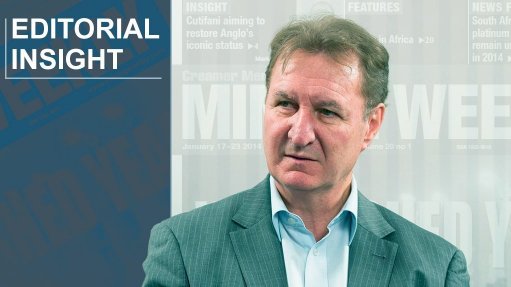
Following the election, South Africans should waste no time in uniting behind the goal of building the economy inclusively and creating as many jobs as possible.
As pointed out by President Cyril Ramaphosa ahead of the election, for the first time in more than a decade, South Africa is in a position to grow the economy and create many more jobs.
A path of renewal has been pursued over the past year, with efforts made to build a comprehensive social compact among key role-players.
Meaningful economic revival is now possible, but, as the President has stated, South Africans need to act with urgency, boldness and togetherness to turn the opportunities to positive account.
Youth joblessness, in particular, and unemployment, in general, need to be reversed as fast as possible. Again, last year, the President announced an economic stimulus and recovery plan in which it was stated that, for economic growth to be inclusive, that is, for growth to assist in overcoming the structural legacy of colonialism and apartheid, economic growth must be nurtured and guided by the policies of a developmental State. If it is not guided in this manner, economic growth can result in increasing inequality or can be destructive to the environment.
On the other hand, South Africa would be best served by a mixed economy in which the State gathers taxes, provides services and offers leadership and policy guidance and in which the private sector is able to grow unfettered and introduce new technologies and innovation.
So, we’ve got to learn to walk on both sides of the road.
Proposed was that, in the short run, South Africa should build on its sizable base of technology and know-how in key sectors, such as agriculture, mining, industry, construction, tourism, telecommunications, automotive and finance, and so on.
It was advanced that, through sector-specific engagements, the country needed to deal with obstacles to growth and investment in key sectors by for example, removing unnecessary visa restrictions, resolving uncertainties in mining investment, creating high-level capacity to better manage expenditure on public infrastructure and releasing the telecommunications spectrum.
Uncertainties and contradictions in government policy have been major stumbling blocks to success and it is wonderful that this was acknowledged and that it was clearly stated that these must be politically managed and resolved.
For example, the unclear broad-based black economic empowerment model must be made crystal clear to stop creeping uncertainties from hampering investment decisions.
Similarly, land redistribution must be accelerated, but, equally, the overall commitment to property rights must be secured and held up high as an essential economic building block. As was laudably stated, expropriation without compensation should be a limited instrument to be used only in exceptional circumstances, such as where land and buildings have been abandoned, and not as a major instrument of restitution and redistribution.
We agree, too, that, in the longer run, the country needs a plan that consciously seeks to increase its competitiveness.